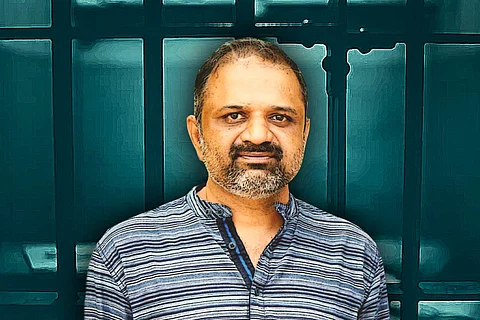

AG Perarivalan, one of the seven convicts in the Rajiv Gandhi Assassination case, has been languishing in prison for almost 30 years. He was arrested as a 19-year-old youth for his alleged involvement in killing the then Prime Minister and has remained inside the prison since. Several mercy pleas and government resolutions later, the Supreme Court, on January 22, 2021, asked Banwarilal Purohit, the Governor of Tamil Nadu to decide on his remission petition in a week.
The Rajiv Gandhi Assassination case has come a long way. From having 26 persons sentenced to death to commuting all death sentences to life imprisonment, the issue has been mired in politics and delays from the authorities. Here’s a timeline on the case and why there are many who support Perarivalan's release.
Prime Minister of India Rajiv Gandhi was assassinated by a suicide bomber on May 21, 1991, when he was visiting Sriperumbudur near Chennai. He was campaigning for the elections along with senior Congress leader GK Moopanaar and was in Chennai after touring Visakhapatnam.
He was killed by an assassin of the Liberation Tigers of Tamil Eelam (LTTE) Dhanu (Thenmozhi Rajarathinam), who detonated the explosive-laden belt under her vest as she bent down to touch Rajiv Gandhi’s feet. Sixteen persons including Rajiv Gandhi and Dhanu were killed in the blast and around 45 persons were critically injured.
In June, AG Perarivalan was arrested in Chennai by CBI officials for facilitating the killing of the former Prime Minister. He was charged with providing two nine volt batteries to Sivarasan, which were then used in the explosive which ultimately killed Rajiv Gandhi. He was also accused of buying a motorcycle in his own name but giving a wrong address.
A case under the now-revoked Terrorism and Disruptive Activities (Prevention) Act (TADA) was registered against several persons by the CBI.
A trial court sentenced Perarivalan and 25 others to death for their involvement in assassinating Rajiv Gandhi.
However, the Supreme Court acquitted 19 persons from the case. The death sentence awarded to the four of the seven accused - Nalini, Murugan alias Sriharan, Santhan and Perarivalan -- was upheld and the sentence for the other three -- Ravichandran, Robert Payas and Jayakumar - was commuted to life sentence.
In Perarivalan's case, it was his 'confessional statement' that led Justices KT Thomas, DP Wadhwa and SSM Quadri to conclude that Perarivalan was aware that Rajiv Gandhi was the target of the attack.
A Multi-Disciplinary Monitoring Agency (MDMA) was also constituted to probe the larger conspiracy angle behind the assassination of the former Prime Minister.
Following this, Perarivalan, Nalini, Murugan and Santhan filed a mercy plea with the Governor of Tamil Nadu which provided relief only for Nalini in 2000. The remaining pleas went to the President of India in 1999, who rejected them in 2011.
Citing delay in deciding on the mercy pleas filed by the convicts, the Supreme Court commuted their death sentence to life imprisonment. The court also said that the state rules will be applicable to their sentence, which allows the state government to release the convicts on life imprisonment after 14 years of good conduct.
A day after the Supreme Court commuted their death sentence, J Jayalalithaa, who was the Chief Minister of Tamil Nadu, announced that her government will release all seven convicts from jail under section 432 [Power to suspend or remit sentences] of the Criminal Procedure Code (CrPC)
The Supreme Court stayed the release of all seven convicts as announced by Tamil Nadu Chief Minister J Jayalalithaa and ordered the state government to maintain the status quo.
Imploring that he has undergone solitary confinement in prison for over 24 years, Perarivalan filed a mercy (remission) plea with the Tamil Nadu governor again.
The government of Tamil Nadu sent a proposal to the union government seeking remission of the life sentences of all seven convicts in the case.
V Thiagarajan, a former CBI officer who recorded Perarivalan’s statement in 1991 told the Supreme Court that he had omitted the part of his statement where he said he had no idea why the two nine-volt batteries were bought. He was referring to the batteries he gave Sivarasan, which was used in the explosive that killed Rajiv Gandhi and several others.
The Union Ministry of Home Affairs, in a reply to the state government, referred to its 2016-remission proposal and said that it did not concur with the proposal and hence did not send it to the President.
The government of Tamil Nadu, led by Chief Minister Edappadi K Palaniswami, also unanimously passed a cabinet resolution recommending the release of all seven convicts in Rajiv Gandhi Assassination case under Article 161.
It also sent the recommendation to the Governor for assent.